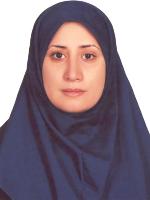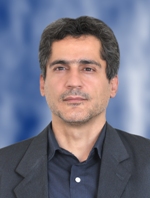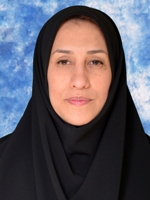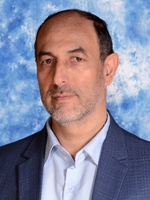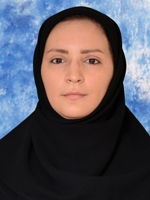Introduction
Environmental engineers are responsible for water, soil and air pollution issues. They develop technical solutions to solve, reduce or control pollution issues in a way that is compatible with legislative, economic, social and political concerns. One the other word, they are responsible for the sustainability of the society as well as water, land and air resources. Some areas of environmental engineers' activities are water supply and sewerage, management of surface water and groundwater quality, remediation of contaminated sites and solid waste management. Also, the uncertainties and risks that threat the systems and consequently public health should be considered in E Environmental engineering.
The Environmental Engineering Division of the School of Civil Engineering, University of Tehran, was established in 2007. Environmental Engineering M.Sc. and Ph.D. programs have been designed to develop human resources capacities in Iran. The main focus areas of this program are the quality of surface and ground water resources and water and wastewater engineering. Both graduate programs admit their students through National Entrance Exams organized by the Iran Ministry of Science, Research, and Technology (MSRT). Consulting companies, government agencies, municipalities, industries and non-governmental organizations and specialized contractors are potential employers for civil engineers with a specialization in environmental engineering. Students of Environmental Engineering Division can use facilities in “Water and Environment Monitoring and Assessment” Lab and “Hydraulic and Fluid Mechanic” Lab.
Environmental Engineering M.Sc. Program
The MSc Program in Environmental Engineering provides an integrated approach to different aspects of environmental engineering. In design of this program high attention is paid to training in professional skills beside the scientific study of environmental management. This program makes student familiar with the environmental challenges and issues that the world is facing today and encourages them to have an integrated and multidisciplinary perspective on environmental problems and to seek solutions that guaranties the future's sustainability. The M.Sc. program curricula is based on the curricula approved by the Iran Ministry of Science and Technology in 2011. In addition to required courses, students should successfully pass 4 elective courses offered in various thematic profiles and other departments in the school. The course structure of the program is as follows:
Required courses for all students:
|
Title |
Credits |
|
The principles of pollutants advection and diffusion |
3 |
|
Principles of water and waters water treatment engineering (theory and lab) |
3 |
|
Two of the following three courses:
Principals of solid wastes engineering and management
Principals of air pollution engineering
Sustainable development and environmental management |
3
3
3 |
|
Seminar |
2 |
|
Thesis |
6 |
Elective courses for Environmental Engineering students are as follows:
|
Course Title |
Credit |
|
Design of water and wastewater treatment plants |
3 |
|
Design of water distribution and wastewater collection networks |
3 |
|
Advanced water and wastewater Engineering |
3 |
|
Advanced groundwater engineering |
3 |
|
Water resources planning and management |
3 |
|
Water resources quality management |
3 |
|
Streamflow and Surface Water Resources Quality Modeling |
3 |
|
Numerical Methods in Water Engineering |
3 |
|
Hydro informatics |
3 |
|
Advanced Engineering Mathematics |
3 |
|
Advanced Probability and Statistics |
3 |
|
Analysis of Risk, Uncertainty, and Reliability |
3 |
|
Computational Hydraulics |
3 |
|
Meteorology and Climate Change |
3 |
|
Hydroclimatology |
3 |
|
Water Resources Systems Analysis and Management II |
3 |
|
Environmental Impact Assessment of Civil Engineering Projects |
3 |
Other elective courses offered by the other departments in the School of Civil Engineering:
|
Course Title |
Credit |
|
Value engineering |
3 |
|
Advanced engineering economy |
3 |
Environmental Engineering Ph.D. Program
The PhD Program in Environmental Engineering is designed for 4 years which can be extended up to 6 years. The students should pass 18 credit hours of courses and 24 credit hours for dissertation. There is no required course in this program and students can select their courses among the offered courses for PhD program as well as the MSc courses. It is recommended that PhD students finish their required courses in the first two semesters, and then take the comprehensive exam. The minimum score of English Language Exam determined by University of Tehran is required for PhD students taking the comprehensive exam. The students can apply two times for comprehensive exam to get the required minimum score. The PhD desertification proposals should be submitted and approved by the evaluation committee up to the fifth semester. For graduation from this program, having at least one accepted paper in ISI indexed journals is needed.

